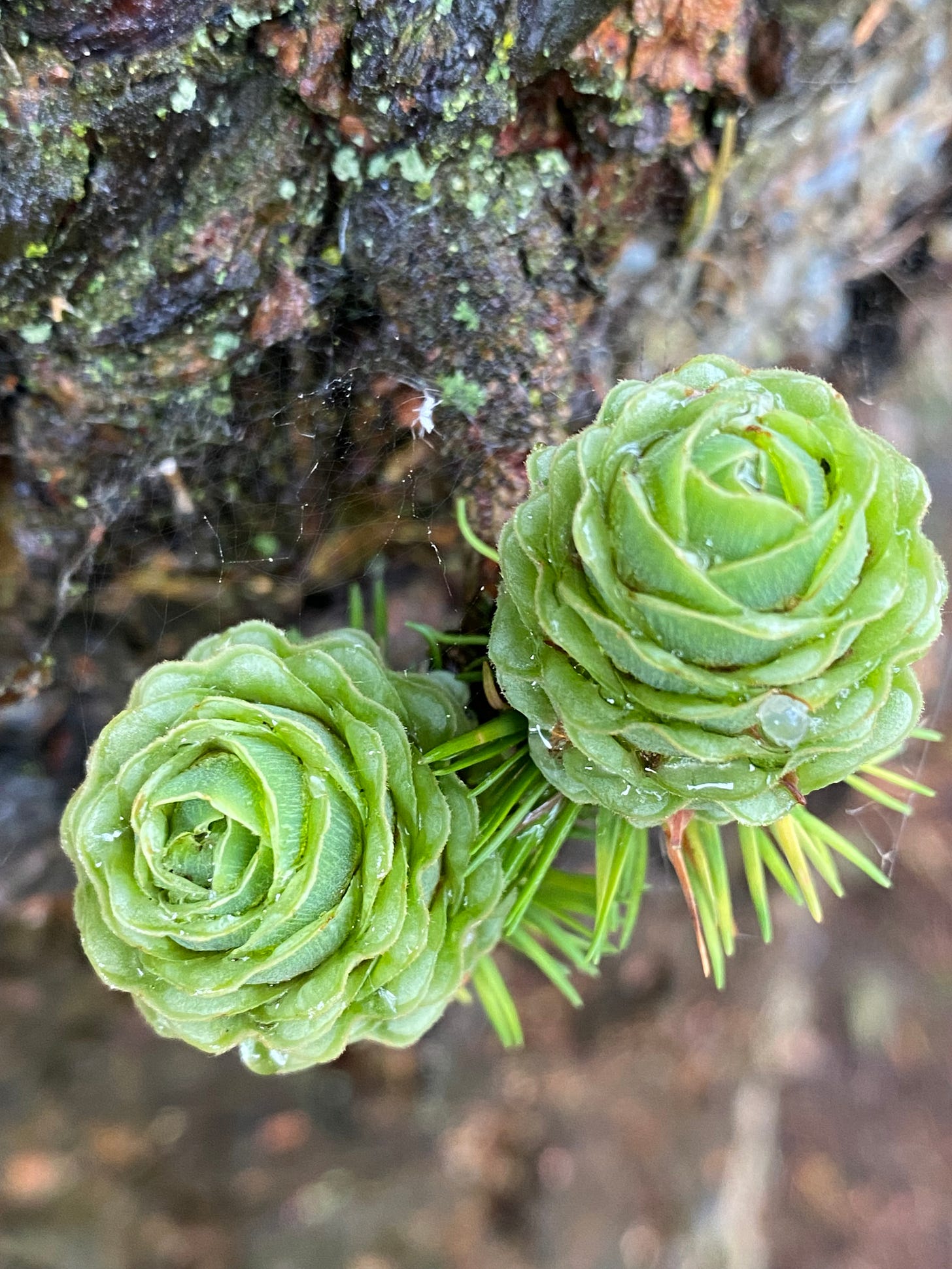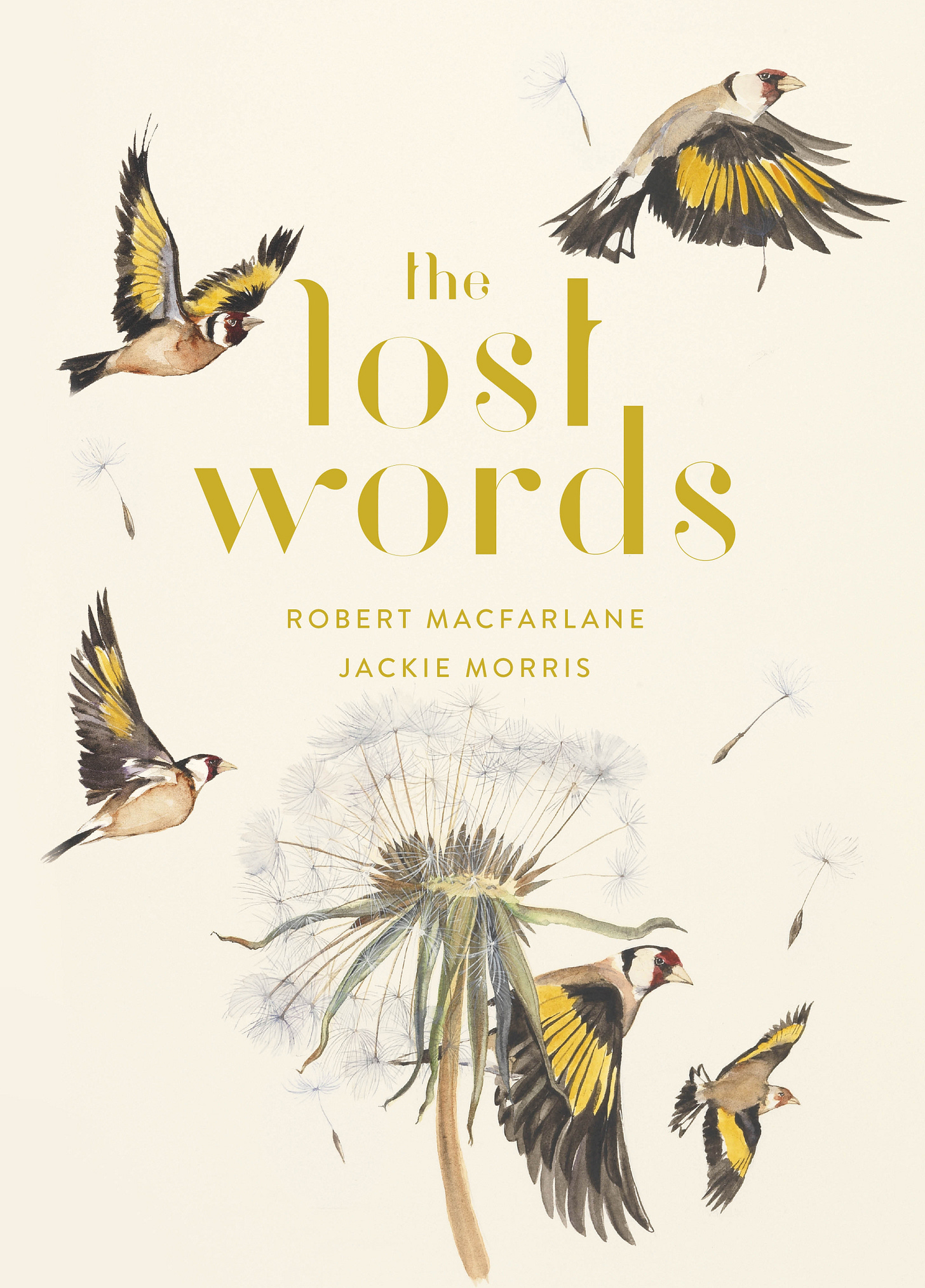Welcome to Regen Notes - joining regenerative dots and spaces between. Thank you for subscribing, if you are not a subscriber as yet, then please do consider doing so to receive new posts and support Regen/Notes
Biophilia Camp 2022
This edition of Regen Notes explores and connects the dots and spaces on nature connectivity, in part, shaping my contribution and participation in our (Living Future Europe) Biophilia Camp, three days in the Italian Dolomites [30 Sep - 3 Oct 2022].
Our camp will be covering: Definitions, constructs and phylogeny of biophilia. / The benefits of contact with nature, the different types of nature, the different human types / Architecture: Biophilic Design / Ecopsychology: Green Mindfulness /Benefits of biophilic design / Mindset Agile and Scrum fundamentals / Biophilic design and Living Building Challenge. Elements, attributes and patterns of biophilic design. Biophilic exploration, charrette and documentation. Yoga and mindfulness
... and it is far far more than just another trainer and trainee camp, but will give real time for exploration, discussion, imagineering and vitally the time and space for reflection - in nature
Facilitators for the camp will be Bettina Bolten, Rita Trombin, Cristina Larcher, Carlo Battisti and Myself
… Find out more and sign up here and join us!
Writings
Maria Popova in her always inspiring BrainPickings blog celebrated Wendell Berry’s Peace of Wild Things poem on his 88th birthday recently.
When despair for the world grows in me
and I wake in the night at the least sound
in fear of what my life and my children’s lives may be,
I go and lie down where the wood drake
rests in his beauty on the water, and the great heron feeds.
I come into the peace of wild things
Our connection and relationship with nature has inspired thinkers and writers down through the ages, from Mary Shelly two hundred years since, who wrote amid widespread death and despair, we must seek peace in the “murmur of streams, and the gracious waving of trees, the beauteous vesture of earth, and sublime pageantry of the skies.”
Wordsworth, one of our celebrated Lake District Romantic Poets in The Tables Turned wrote “Come forth into the light of things and Let nature be your teacher”
Erich Fromm introduced the concept of biophilia as an antidote to gloom and despair, something we can certainly identify with now. We can wrap our connectivity in Ecopsychology meaning, and important to do so for our understanding, yet we all know the innate feeling we have for that landscape, the minute world of mosses, or the smells in a forest after a storm passes.
Words
Environmental philosopher Glen Albrecht has brought into being many wonderful words and expressions that stop us in our track and help explain the feelings we have regarding our environment and natural surroundings
Eutierria - being one with nature, in the flow, when “the human-nature relationship is spontaneous and mutually enriching (symbiotic). The prefix “eu” is from the Greek word for “good”; the root “tierra” means Earth.)
Sometimes it’s easy to see a flower, a deer, a salamander, or a redwood tree and be impressed by its beauty, agility, resourcefulness, or tremendous age and size. But for most of us it takes some life experience to come to truly appreciate that each individual thing makes no sense by itself but is rather an associate of all of the others in its environment and is indeed itself the outcome of a long history of interrelationships between its ancestors and the environment(s) in which they evolved. That environment of course includes non-living aspects such as the lithosphere, the atmosphere, and the sun, with its life-giving radiation. Psychology Today
Soliphilia - we talk often of everything being connected (that resonates well with the often seen and used John Muir quote “when I pull on anything in nature I find it connected to everything else”) but how do we ‘feel’ that connection? Albrecht gives the “love of the interrelated whole” the term soliphilia. Could this be more powerful than biophilia - connecting us not just to nature, but to the spirit of life, of the earth's seasons and of place?
One of the sessions I enjoy and find incredibly grounding throughout the year is the Resurgence Magazines Earth Festival Meditation Journeys, hosted by Georgie Gilmore, celebrating the earth and our place in the web of life through guided-meditation, nature-connection, seasonal-reflection and self-inquiry. The most recent being a celebration of Lammas.
Language is important.
And whilst we may be focused on introducing biophilia and nature into classrooms, nature words are disappearing from children’s dictionaries and text books, being replaced with a more technical lexicon. This inspired the beautiful work from Robert Macfarlane and Jackie Morris - The Lost Words, poems or rather, spells to bring lost words of nature back to life. “A book that has had a transformative effect on all who have come in contact with it” Which, then in turn, has spawned the Lost Spells and the awesome Lost Songs music.
Perhaps missing in our current approach to biophilic and biophilic design is emotion and compassion, not only how we feel in nature, but how we regard and care for nature. Compassion has been added to the biophilic debate through the Pathways to Nature work of Miles Richardson Professor of Human Factors and Nature Connectedness at The University of Derby. The five pathways being Contact, Beauty, Meaning, Emotion and Compassion - it is a powerful approach used recently with the Interior Design undergrads at Derby.
Biophilia and biophilic design is being about our values and ethical responsibility for the care and sustainability of the natural world. Stephen Kellert.
As part of our Echelon Regenerative Social Housing programme Anna Williamson led on a lovely overview exploring Permaculture Principles - illustrating one of the Regenerative Playbook Challenges, (to become more aware: look to nature and natural cycles: taking only what we need and using everything we take.) - a time proven approach to living with, design with, and just seeing ourselves as part of nature, rather than apart from.
Loss
Without action to halt and reverse the loss of nature, projections of economic growth and visions for a better life are impossible: “there is no future for business as usual. We know that here in the UK we are the 12th worst biodiverse country, so this hits hard and true. I would enhance this 2020 warning from the Science Based Targets for Nature Guidance for Business
for Economic growth also include green-growth and de-growth,
for Visions for a better life read biophilia, wellbeing and mental health,
for There is no future for business as usual also read no future for sustainability or ESG business as usual
In FutuREstorative biophilia is described as the secret sauce of sustainability - a vital component that improves our wellbeing and in doing so heightens our sense of compassion and our awareness of the little actions we can take to address the climate crisis
In Vogue
We all know that spending time in nature is good for us—it can help boost our mood, as well as lower our stress levels. But with the fast pace of modern-day life (and our addiction to our phones), many of us don’t prioritize being outside as much as we should. Here, Vogue picks out the best nature books that’ll help you to reconnect with Mother Earth.
Rooted by Sarah Langford/ Wilding by Isabella Tree / Love Letter to the Earth by Thich Nhat Hanh / Braiding Sweetgrass by Robin Wall Kimmerer / For the Love of Soil by Nicole Masters / The Gardener’s Companion to Medicinal Plants by the Royal Botanic Gardens Kew / Gaia by James Lovelock / Losing Eden by Lucy Jones / The Hidden Life of Trees by Peter Wohlleben / Finding the Mother Tree by Suzanne Simard / Walking: One Step at a Time by Erling Kagge / Rewild Yourself by Simon Barnes & Grow, Cook, Dye, Wear by Bella Gonshorovitz
This is a great compilation, many of which have been discussed or referenced on Zoom Regenerative.
Question
In all of these notes there is the question - where do I/we/you go in search of your peace of wild places, as the climate crisis (and all its attendant crises) bite deeper into our lives? What spell would we use to conjure lost ideas back into being? And for those of us in the regenerative, sustainability space, how do our approaches and our designs harness nature, enhance our senses, our eutierria, and enable us to innately be aware of the connectivity of all?
Regen/Notes links
Compliment these notes through revisiting previous posts, in particular, Storms and Starlight - Rekindling our relationship with nature.
The pandemic lockdown has shown what’s possible - when being contained in our homes, on our 1-hour exercise, we sought nature. And we were treated to a preview of what the world could look like, we shared, we watched sunsets in awe, we listened to a world of silence, to bird song, free from the hum of transport, we were amazed at how nature, deer, birds, reclaimed our streets.
In every walk in nature, one receives more than one seeks - John Muir 1877
Zoom Regenerative - dates for your diary
Re-zooms on the 13th September - and then 11 October, 22 November and 13 December.








